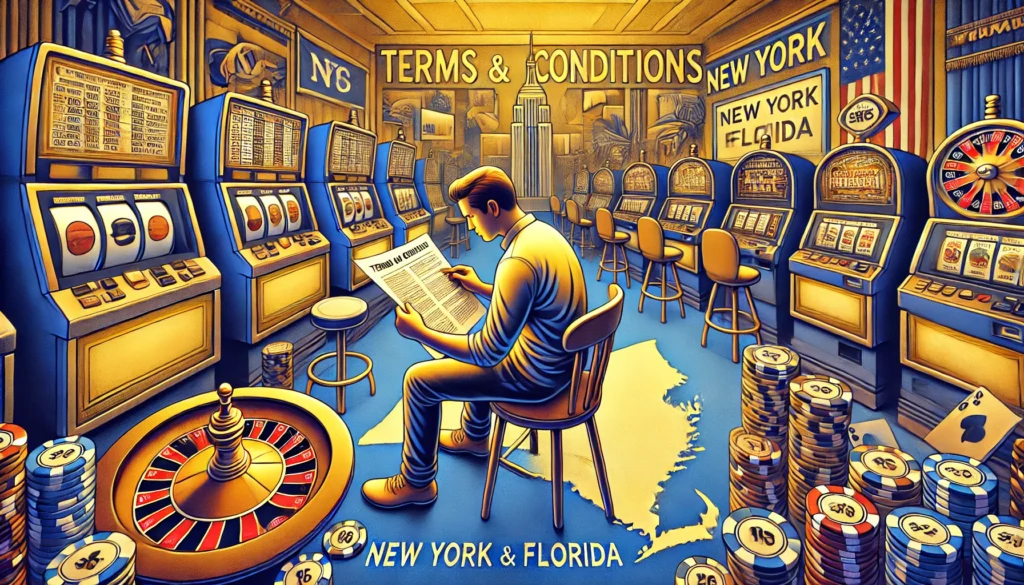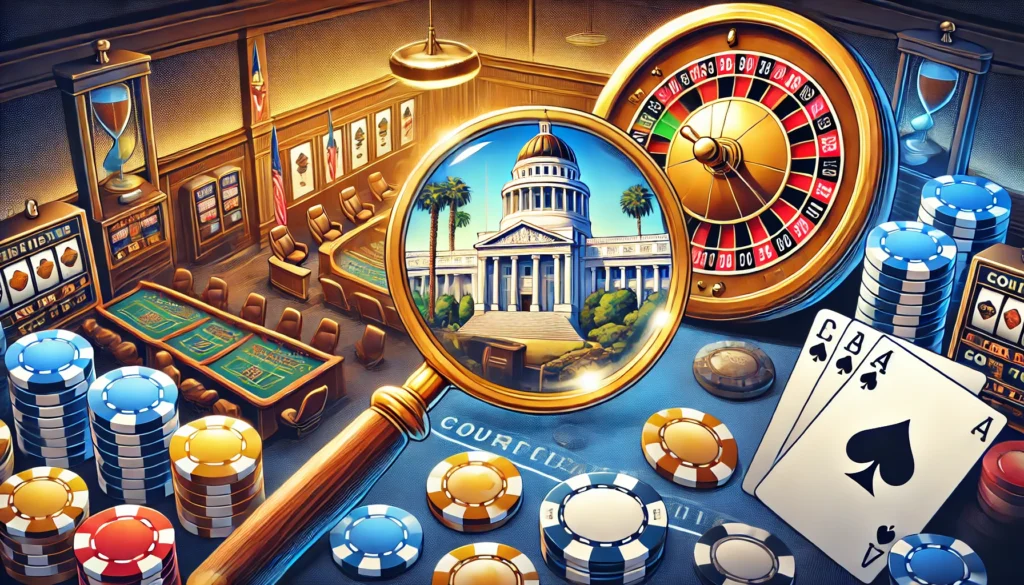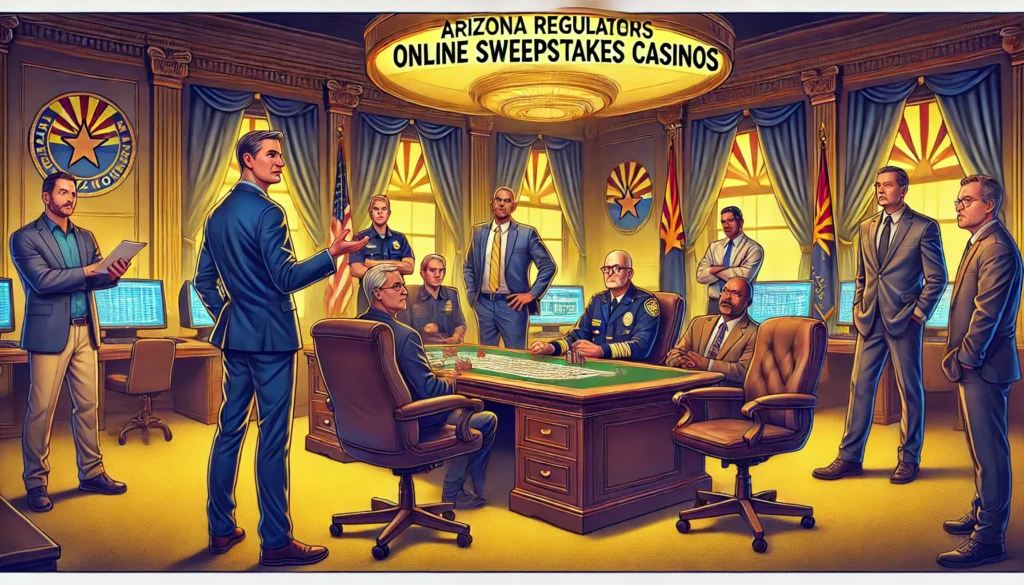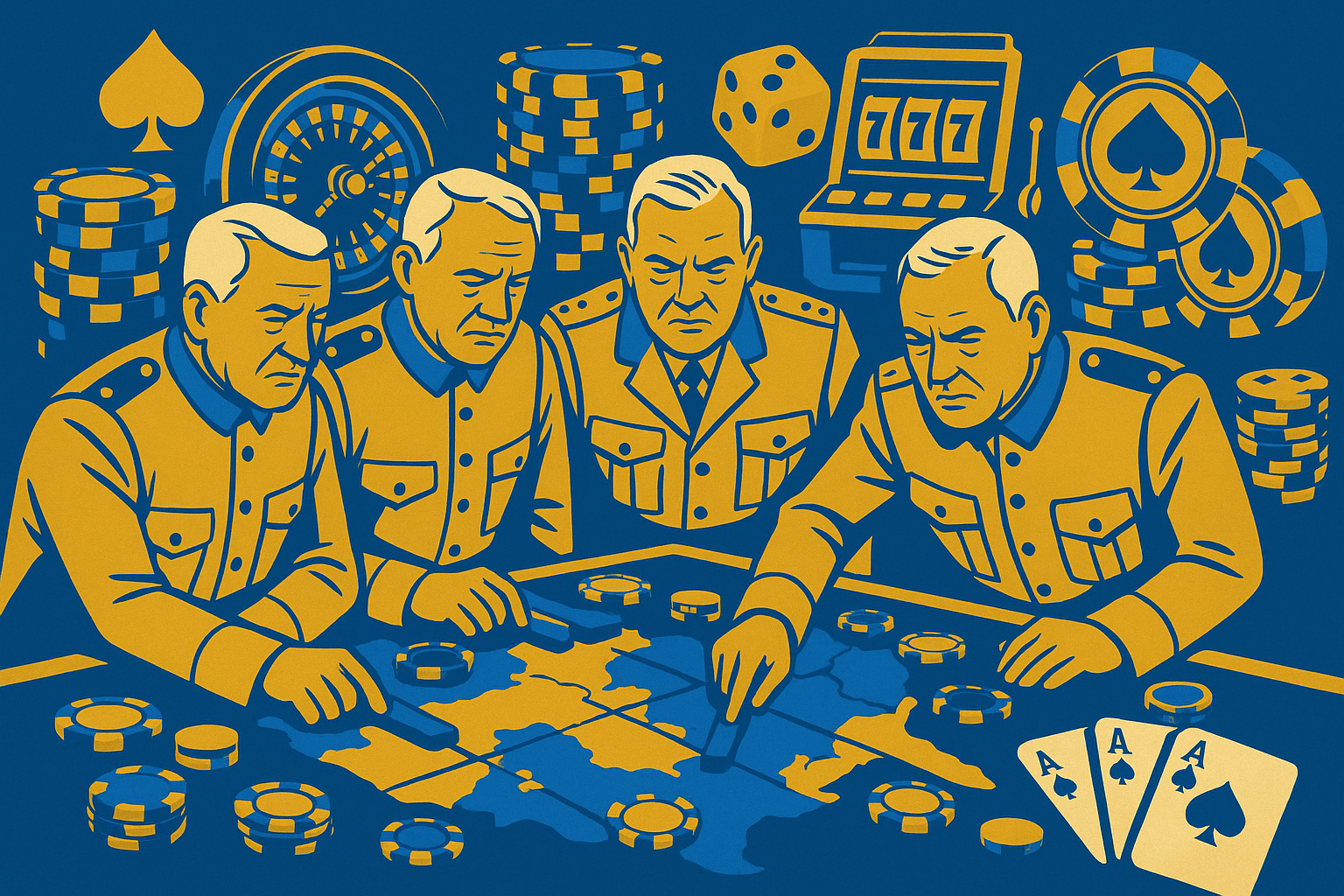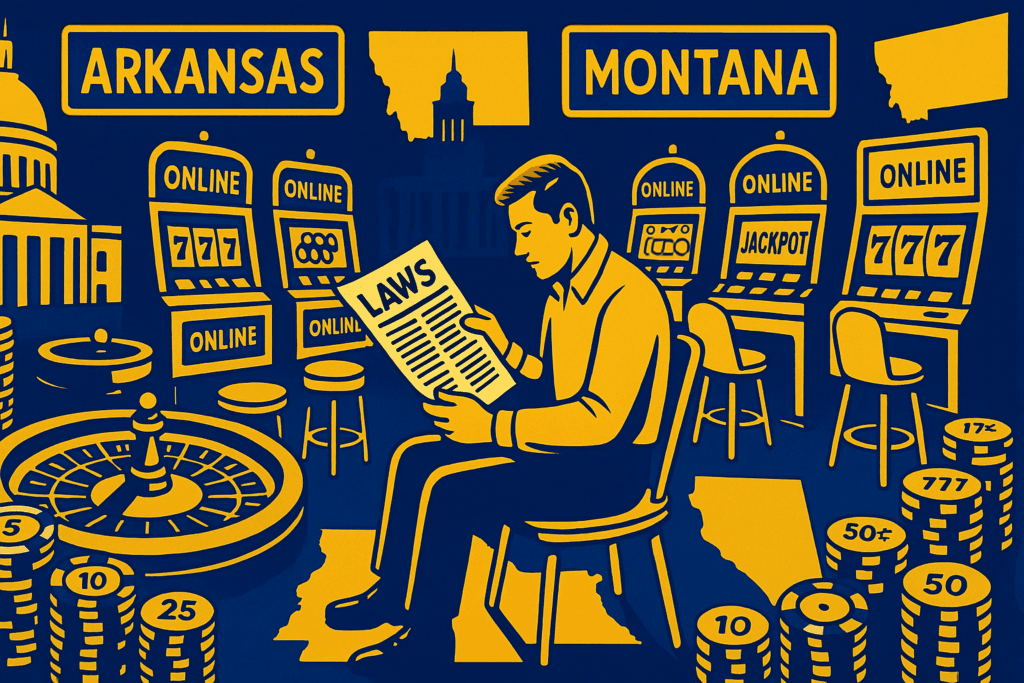If 2024 was the year sweepstakes gaming burst into the gaming industry’s collective conscience, 2025 will be the year it becomes the industry’s new obsession.
Prepare for a whole lot of discussion and perhaps some significant decisions involving the sweepstakes market, where the dual-currency gaming model has invited interest and speculation from players, real-money operators, lawmakers, courts, and more.
Here are seven storylines to follow in the burgeoning sweepstakes industry in 2025.
Market saturation may drive mergers and acquisitions
Let’s play a game: Type “sweepstakes casino sites” in Google right now. Click on any of the lists that pop up. You’ll probably see 20, 30, 40, even 50 different options, depending on what Google result you click.
Alex, what is market saturation?
A bunch of smart people in the gaming industry realized the barriers to revenue are more minimal in sweepstakes gaming, and they’ve flocked to create sweepstakes products.
But there isn’t endless room on the sweepstakes bandwagon. And, despite the relatively low cost of entry compared to that of a regulated market, there’s just not enough money to support 50-plus viable platforms.
So, that’s where mergers and acquisitions may come into play in 2025.
Does VGW Holdings, the owner of brands like Chumba Casino, LuckyLand Slots, and Global Poker, purchase some of the smaller-but-mighty brands? Do operators like High 5 Games and Heuston Gaming (Sweeptastic) merge to compete with VGW?
More states may follow NY and FL’s lead with prize limits
With no federal laws applying to internet sweepstakes gambling, it’s up to each individual state to govern the gray market. Washington and Michigan have banned the sites entirely.
It’s doubtful other states follow that hard-lined stance, as least in the short-term.
Perhaps a more likely near-term adjustment could come in the form of prize limits. Right now, in Florida and New York, players can redeem cash prizes of only up to $5,000.
If states are looking to make a statement to sweepstakes operators but not boot them out entirely, prize limits are a viable option.
Will operators tweak the sweepstakes gaming model?
Even if it doesn’t happen in 2025 — or even by 2030 — it does feel inevitable that the current sweepstakes gaming model will be forced to change at some point.
So might the operators want to get ahead of that change?
At the heart of any lawsuit against sweepstakes operators is their dual-currency gaming model — where one currency (Gold Coins) is purely for in-game use, and the second currency (Sweeps Coins) can be redeemed for cash prizes. The easiest way to get Sweeps Coins is to buy Gold Coin packages that come with Sweeps Coins as a “free” bonus.
Perhaps operators could make it so Sweeps Coins can only be used on certain games, or for certain durations of time. Perhaps operators will give players an option to play a version of the platform with ads, where they can’t purchase any Gold Coins but instead rack up GC and SC via time spent on the platform. Operators will still make revenue via ads, but there will be no overspending worries on the player’s side.
That’s just spitballing. But the change would need to have responsible gaming top of mind.
Impact on the stalled US iGaming momentum
Wyoming is just about the only state with near-term potential for online casinos, and that market size isn’t going to move the needle. And iGaming bills in Virginia and Maryland aren’t obvious contenders yet. Same story with the online casino rumblings in Louisiana.
The retail cannibalization argument has just about frozen the industry and created a gridlock that, frankly, doesn’t appear anywhere near close to being broken.
However, if sweepstakes gaming continues to explode at its current rate (85% compound annual growth rate from 2019-23, per Eilers & Krejcik), that will add fuel to iGaming proponents’ arguments. They’ve worked hard to persuade lawmakers and voters that unregulated offshore sites are collecting boatloads of tax dollars from gamblers in states where online casinos aren’t legal.
These sweepstakes sites are doing the same thing.
So can a larger sweepstakes market with more widespread visibility give online casino proponents another piece of ammo and actually help them convince lawmakers to legalize iGaming sooner?
Will retail casinos join forces with sweepstakes operators?
It’s smart business to take a look at sweepstakes gaming right now.
So, might we start to see brick-and-mortar casinos partner with sweepstakes operators, much like they’ve partnered with the BetMGMs and FanDuels of the regulated world in states with real-money online casinos?
We’ve already seen tribal casinos in California partner with operators like Sparket to provide free-to-play iGaming with prizes built around rewards points or in-person experiences at the casino.
It feels like the relationship would be beneficial. The brick-and-mortar casino(s) would promote the sweepstakes site and likely advertise some sort of sign-up special, giving that site an extra dose of visibility in that market. Meanwhile, the retail casino makes a chunk of money from whatever deal they struck with the sweepstakes operator.
These would by no means be big-money deals — it’s not like the sweepstakes sites would have to rely on these partnerships to gain access to a state’s regulated market.
But they’d be something.
Some sort of decision will move the needle in 2025
These state-level class-action lawsuits currently being waged against sweepstakes operators likely won’t move the needle at all in terms of changing the sweepstakes industry, said Daniel Wallach, a US gaming law and sports betting attorney.
“From arbitration clauses to jurisdictional defenses, there are procedural challenges every step of the way,” Wallach wrote in a LinkedIn post after a Georgia judge sided with VGW in a recent sweepstakes lawsuit. “And those cases that do survive the gauntlet will either take years to litigate or inevitably get settled (see Kentucky). VGW will not want to risk going to trial, where the possibility of an adverse judgment could have national impacts.”
Instead, Wallach said any judicial decision of note would have to stem from lawmaking bodies and organizations, not private citizens.
“The cases that will ultimately decide the legality of the ‘dual-currency’ sweepstakes model — if it ever gets decided — will be those instituted by governmental bodies, such as State AGs and gaming regulatory agencies,” Wallach wrote, “and likely only after a cease-and-desist order that goes unheeded. Coming in 2025.”
Let’s see if the SPGA has any real teeth
Sweepstakes operators formed the Social and Promotional Games Association to advocate the industry as scrutiny intensifies. A big part of that is trying to promote responsible game play.
The SPGA unveiled a Code of Conduct for its members in December. Its four main tenets are:
- Age verification to limit purchases to those 18 and older
- Proper identity verification (Know Your Customer or KYC)
- Customer location verification
- Anti-money laundering policies to monitor transactions
In its release announcing the Code of Conduct, the SPGA said it would unveil more pillars of the code in the coming months “and engage an external firm to certify member compliance with the Code.”
So it sounds like there will be a certification process.
But will there be penalties if a member doesn’t abide by the Code of Conduct? Will there be fines?
Or … will that operator just lose its certification but continue to do whatever the heck it wants?
In other words: Can the SPGA in any way like a regulatory body could? Doubtful. But we’ll see if it develops some teeth.


